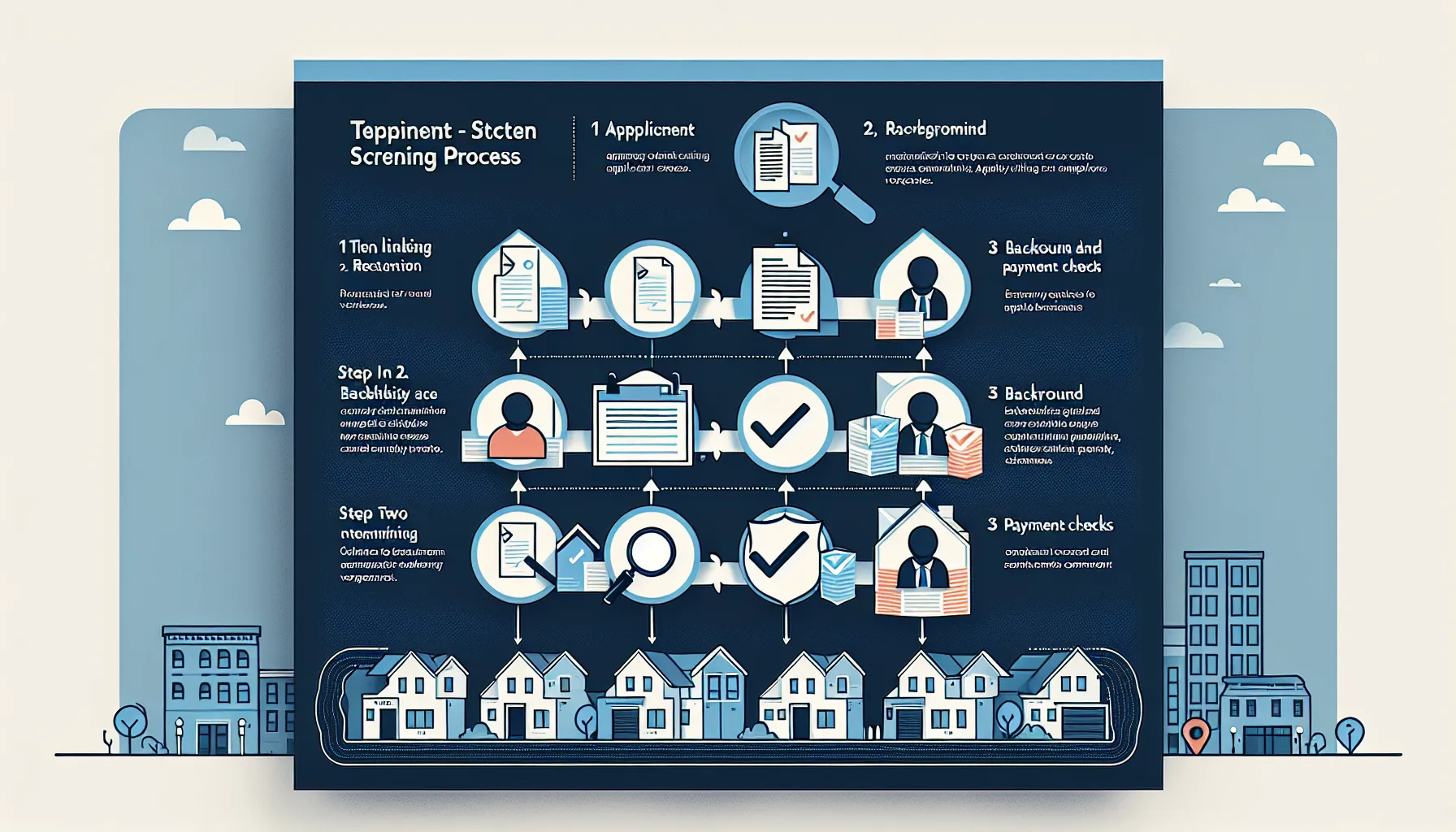Finding the right tenant for your rental property in Pleasant Hill often feels like a balancing act. Have you ever worried about making the wrong choice, or wondered if your process covers all the legal bases? You’re not alone. Many local landlords share these concerns, especially with changing regulations and growing demands from both tenants and the market.
I understand how important it is to feel confident in the person occupying your rental. You want someone reliable who respects your property and pays rent on time, but you also want to build a respectful, successful landlord-tenant relationship. In this guide, I’ll walk you through an effective, fair, and hassle-free approach to Pleasant Hill tenant screening. Whether you’re experienced or brand new, there’s advice here to help you protect your investment and grow your peace of mind.
Key Takeaways
- A thorough Pleasant Hill tenant screening process helps reduce missed payments, property damage, and disputes.
- Always follow federal, state, and local Fair Housing laws to ensure equal treatment during tenant screening.
- Collect detailed applications, obtain written consent for background checks, and verify both employment and rental history for every applicant.
- Use clear, consistent screening criteria—such as income thresholds and minimum credit scores—to make objective rental decisions.
- Prompt communication and transparent processes can help secure qualified tenants quickly in Pleasant Hill’s competitive market.
Understanding Tenant Screening in Pleasant Hill

Tenant screening serves as one of the most critical parts of managing rental property in Pleasant Hill. By carefully selecting your tenants, you can reduce the likelihood of missed payments, property damage, and disputes.
Screening isn’t just about avoiding trouble: it’s about finding applicants who fit your expectations and respect your property. In Pleasant Hill, with its active rental market and diverse population, a thorough process helps you make balanced decisions that benefit everyone involved.
The goals of screening are clear: verify a prospective renter’s ability to pay, check their history for red flags, and confirm that they’ll be a responsible neighbor. This goes beyond a surface-level review, it’s about combining local insight with proven steps to build trust while following all the rules.
Legal Requirements and Fair Housing Considerations

Staying on top of Pleasant Hill’s rental laws is key, but you also have to factor in broader state and federal requirements. The Fair Housing Act and California’s strict regulations make it crystal clear: every applicant deserves equal treatment, regardless of race, gender, family status, disability, national origin, or other protected categories.
It’s not just about being fair, violating these laws can have serious legal and financial consequences. If you’re screening tenants, use the same criteria for everyone. This means standardizing your application process and being consistent in how you evaluate credit, rental history, and income.
Some local rules also touch on what you can and can’t ask, especially concerning criminal history or source of income. Double-check Pleasant Hill ordinances and stay updated with state changes. If you’re ever in doubt, consulting a knowledgeable property manager or a real estate attorney may save you trouble down the line. I always find it best to keep a clear written screening policy and share it openly with applicants, transparency builds trust and helps everyone know where they stand.
Key Steps in the Tenant Screening Process

Screening a tenant involves several stages, and skipping even one can lead to headaches later. In Pleasant Hill’s competitive rental scene, moving efficiently, but thoroughly, makes a big difference.
Application and Consent Collection
Start by collecting a detailed rental application from every adult applicant. I recommend asking for full name, date of birth, social security number, current and past addresses, employment details, and references. Always obtain written consent before running background or credit checks: this isn’t just best practice, it’s the law. Be transparent about what you’ll review and why it matters.
Conducting Background and Credit Checks
Once you have consent, run a credit report and a criminal background check. The credit report gives insight into financial responsibility, past debts, and payment habits. Look for patterns: recent late payments or a high debt load might call for a closer look.
Background checks reveal criminal convictions, but remember to consider timeframes and the relevance of any issues to tenancy. California law restricts what housing providers can use in decision-making, always follow legal guidelines. Some local ordinances also prevent blanket exclusions based on criminal history.
Verifying Employment and Rental History
The next key step is to confirm your applicant’s income and job stability. Reach out to employers for dates of employment and salary verification. Consistent income, especially from a regular, verifiable source, is usually a positive sign.
Checking prior rental history matters just as much. Speak with previous landlords to ask whether the tenant paid rent on time, respected property rules, and gave notice before leaving. Listen for hesitations or gaps in the story, a quick call can often reveal more than paperwork ever will.
Evaluating Screening Results and Making Decisions

By this stage, you’ll have gathered applications, checked credit, reviewed background information, and contacted references. Now comes the part that often feels the most difficult: balancing all the information and making a decision.
I always use clear, written criteria, income threshold (for instance, 2.5 or 3 times the rent), a minimum credit score, and no recent eviction history. Sticking to your standards protects your property, but make sure they are reasonable and don’t unintentionally rule out strong candidates.
If an applicant doesn’t meet your requirements, you have to provide an “adverse action notice” under federal law. This is a written statement explaining the reason, especially if it was due to their credit report or public records. Being honest and direct here is essential.
On the flip side, when you find a great candidate, move quickly. Pleasant Hill’s market means the best renters often have other options. Prompt communication helps avoid losing top picks to competing properties. Have you ever missed out on a great tenant by waiting too long? I’ve learned that speed, paired with a solid screening process, sets both landlords and tenants up for a positive start.
Best Practices for Pleasant Hill Landlords

Successful tenant screening isn’t just about checking boxes, it’s about setting up your rental for long-term success. Here are a few strategies I’ve found helpful in Pleasant Hill and nearby East Bay cities:
- Use written policies: Write down your criteria for all applicants in advance.
- Stay consistent: Apply your standards equally, every time, to build trust and avoid legal trouble.
- Communicate clearly: Let applicants know what you’ll check and why. Openness often leads to smoother conversations.
- Document everything: Keep detailed records of all applications, checks, correspondence, and decisions. Should a question arise later, you’ll have the facts at hand.
- Respond promptly: Good tenants are often snapped up quickly. Fast, courteous replies, just like the client testimonials mention, make you stand out in a crowded market.
I’ve noticed that landlords who communicate well and follow up quickly receive more positive feedback, both from tenants and local peers. Just a kind message or a helpful explanation makes a lasting impression. Pleasant Hill renters appreciate landlords who are organized and fair. Establishing mutual respect from the beginning sets the foundation for a peaceful, productive tenancy.
Conclusion
Screening tenants in Pleasant Hill is a responsibility, but it’s also a chance to build solid, respectful relationships with renters. With a clear process and a grounded understanding of legal obligations, you can sleep easier at night. Effective tenant screening lets you protect your investment, while offering fair opportunities to qualified applicants.
If you’re ready to improve your screening process or want help managing your property, remember that support and expertise are just a step away. The best tenancies always begin with care and thoughtful planning. How could your rental business grow if every tenant added peace of mind, not stress? Take the next step now, you’ll thank yourself later.
Frequently Asked Questions About Pleasant Hill Tenant Screening
What is Pleasant Hill tenant screening and why is it important?
Pleasant Hill tenant screening is the process landlords use to evaluate rental applicants by checking credit, background, income, and rental history. It helps reduce risks of missed payments or property issues while ensuring a responsible and respectful tenant occupies your property.
What are the legal requirements for tenant screening in Pleasant Hill?
Landlords in Pleasant Hill must adhere to federal and California state laws, including the Fair Housing Act. This means treating every applicant equally, not discriminating based on protected categories, and using consistent screening criteria. Local ordinances may also restrict what questions you can ask.
How do I conduct a thorough Pleasant Hill tenant screening process?
Begin by collecting a detailed rental application and ensuring written consent for background and credit checks. Then, verify income, contact employers and previous landlords, and evaluate all findings against pre-set criteria. Document every step for transparency and legal compliance.
Can I reject an applicant based on credit or background checks in Pleasant Hill?
Yes, you can reject an applicant if they do not meet your established, written screening standards, such as minimum credit score or income requirements. If rejection is based on credit or public records, federal law requires you to provide an adverse action notice explaining the reason.
What are some best practices for Pleasant Hill landlords when screening tenants?
Best practices include using written policies, staying consistent with your criteria, communicating transparently with applicants, keeping detailed records, and responding quickly to inquiries. Prompt and organized communication builds trust with prospective tenants and sets a positive tone for your rental relationship.
How can I improve my chances of finding reliable tenants in Pleasant Hill?
To find reliable tenants, follow a standardized screening process, advertise your property effectively, and respond promptly to quality applicants. Building mutual respect, maintaining clear communication, and enforcing fair screening standards attract responsible renters and promote long-term tenancies.
